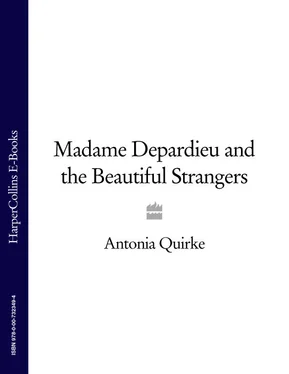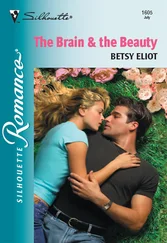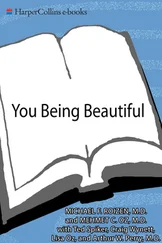‘What are they?’ he asks.
‘What?’ says Keaton.
‘The things that you have. That are yours. What are they?’
– this in his Nicholsonian way, turning over every word, holding it up to the light, inspecting it, and then judiciously pondering whether to place it, with great delicacy, in the world or just to, what the hell, smash it.
‘If you were mine,’ he goes on, ‘it would just be you and me. And it would feel a lot more like love than being left alone with your work.’
By this time you're pretty much rolling around on the floor clutching your ribs and screaming stop! stop! though there is nothing ostensibly there in his delivery except O'Neill's love, his courage in declaring himself, and the glimmer of an accusation against Keaton's way of life with Beatty.
But you're killing yourself, because everything Nicholson says is given its sense by how near or how far it is from the pure delight that makes up his soul. Not sniggering mischief, as people always say of him – delight. It's what makes him so tragicomic. Nothing he says isn't a fuse burning towards some dynamite-pile of hilarity. And he makes brilliant use of its absence, sparingly, and devastatingly, like in the two scenes in Five Easy Pieces (his best film) when he walks out on Karen Black. You think: My God, where's it gone? He reminds you of just how much you've got to lose, of how high the stakes are. Everything he does in his early films is to do with the frustration of this delight. You've got to be a comedian to be a tragicomedian. He'd be brilliant in Chekhov. Brilliant as Astrov in Uncle Vanya, the still-not-disillusioned doctor not a million miles from his not-quite-yet-disillusioned pianist in Five Easy Pieces.
It's so close , this delight. All you have to do is laugh and the world will be full of it. And in his early films Nicholson keeps trying to tickle the world and failing to make it laugh. Meanwhile, we're laughing our heads off. Even to know that delight, in a perfect world, would be the proper response to life is a simplicity beyond most of us. It's not something that any of those other great actors mentioned above seem to have worked out. Do you know how rare this is? This innocence? Why you keep thinking Jack is a boy? It makes him one in a million. It makes him able to tell the story of the loss of innocence which nobody , only great artists, can do. What an absolute privilege to watch the young Jack liven up Easy Rider (he's the only utopian in it!) and talk you through the fall in Five Easy Pieces and tell you what you're leaving behind in The Last Detail. Amazing, amazing. It's the heart of Nicholson – that his essential self remembers innocence, remembers, no matter how scuffed, a prelapsarian world. And that's why the revered and lauded three-time Oscar winner is very, very underrated. Yes, you heard me! Jack Nicholson is underrated.
10 October 1993
The elephants, who have not
been getting on with the new
rhino, slept through the exhibition
which was being held in
the elephant house at the zoo last
night (Monday) by an Israeli
artist who arrived in the country
only yesterday (Monday) before
returning to Tel Aviv tomorrow
(Wednesday).
‘No wonder you failed your fucking degree,’ Jim said. ‘Nobody cares when the artist is going back or what the rhino thinks. You want to know who was there and how long it's on for. See?’
‘Got it. Except – what's wrong with the rhino exactly?’ I wanted to keep him talking.
‘Even if the rhino's doing the elephant's wife, we don't want to read about it. That's not the fucking story. You've got to find the story.’
But I never could – two-hundred-word pieces unstoppably ballooned, like Rufus Sewell, into vast paunchy monsters, and then were brutally slimmed down again (like Rufus Sewell) by brisk sub-editors. And the Journal, for all its apparent slapdashness, was a very serious little operation, with a sinecure on the Local Newspaper of the Year Award. Eric knew what he was doing, always running the necessary campaigns and magnificently inclusive little obituaries of local burglars and tramps. So I was aware that it was something of a test when he sent me to talk to a woman who was staging a protest in Arlington Road about the poll tax. It was an important story and I had a sense that I might actually be sacked, and never see Jim again, if I couldn't find it.
‘Where the fuck have you been?’ said Jim when I returned five hours later.
‘I think Mrs Norman's a bit paranoid,’ I said. ‘She thinks the FBI are watching her. But – it's actually quite interesting. There were two guys in a dark car watching the house the whole time I was there. Wearing ties. In this weather? It does seem a little strange. And get this – she keeps getting letters from the library asking her to return a book on J. Edgar Hoover. But she never took it out. So I wrote down the licence number in case you want to follow it up.’
I was demoted to theatre reviews.
‘What's the date, the first?’
‘Look at the paper. Oh, no, wait, of course it's the first – it was Halloween last night. What's the matter?’
‘River Phoenix is dead. It looks like an overdose.’
‘Poor kid. Deliberate or accidental? Bet it was coke. Coke and booze. Bet it's a John Bonham. What's the matter with you ?’
What's the matter with me? Nothing. There was nothing to show that he was ever going to be great. In fact, you could pretty much guarantee that he wouldn't have been. But he wasn't Andrew McCarthy Jnr, or Ralph Macchio, or C. Thomas Howell either. He wasn't Björn Andrésen, the vision from Death in Venice, who was never going to be an actor. On the other hand, he wasn't Jean-Pierre Léaud. But he broke your heart. He was weak and soft and seemingly always in tears. In Running on Empty, a pretty good film which he made at the age of seventeen in 1988, he was the sort of teen dream that sends girls sobbing to their bedrooms, and yet there was nothing confected about him. He plays the son of parents on the run from the FBI, so he has to keep moving from town to town, leaving his friends and first girlfriends behind. It's an amazingly immature performance for one of his age, as they never say. It's so not mature. It's brilliant. When my little sister watched Titanic she was inconsolable for weeks. ‘There's no one like Jack!’ she would wail and I'd think yeah, kid, that's right. There is no one like Jack. They just made him up for money. But there is someone like River Phoenix, sweetheart. Phoenix is an open wound in Running on Empty, with clumsy hands and an uneasiness with his own new beauty (he'd been a chubby kid – Stand By Me), and a bloom of puberty still on his cheekbones. Large stretches of his performance look like perfect honesty, too natural to call naturalism. He was Romeo, and no one can ever get Romeo right, because by the time you've cast him the actor's got too old. Running on Empty isn't a good performance by an unfortunately doomed actor. It's a true moment caught in time. The moment when you feel more than you ever have or ever will again: the Romeo moment. There he was. And you can't pay an actor a higher compliment than that. He broke your heart. And the date was 31st October 1993.
On Mondays he would go down to the police station and then the Princess Louise, coming back late and maybe even sleeping in the office. On Tuesdays he would usually go down to Paddington Green CID to get stories there and spend the evening at a public meeting. On Wednesdays he was busy putting the paper to bed. Thursdays and Fridays – that was my chance. The long, long weekends he disappeared. If you'd have been there, you'd have wanted to be his friend or his lover, if only to turn his fire outwards from you. Jim was the first principled man I had ever met, my father apart, sardonic and fearless like Sydney Carton. He was the first man I had ever met. But I hardly ever saw him now, and had no real reasons to engage him in conversation. So I became more besotted. The sentence ‘Jim's putting the paper to bed’ could incapacitate me for an hour. Yet he was as oblivious of me as an actor on a screen, and one always falls for those who cannot return your gaze, the blithe, the unaware, the one across the lawn.
Читать дальше












